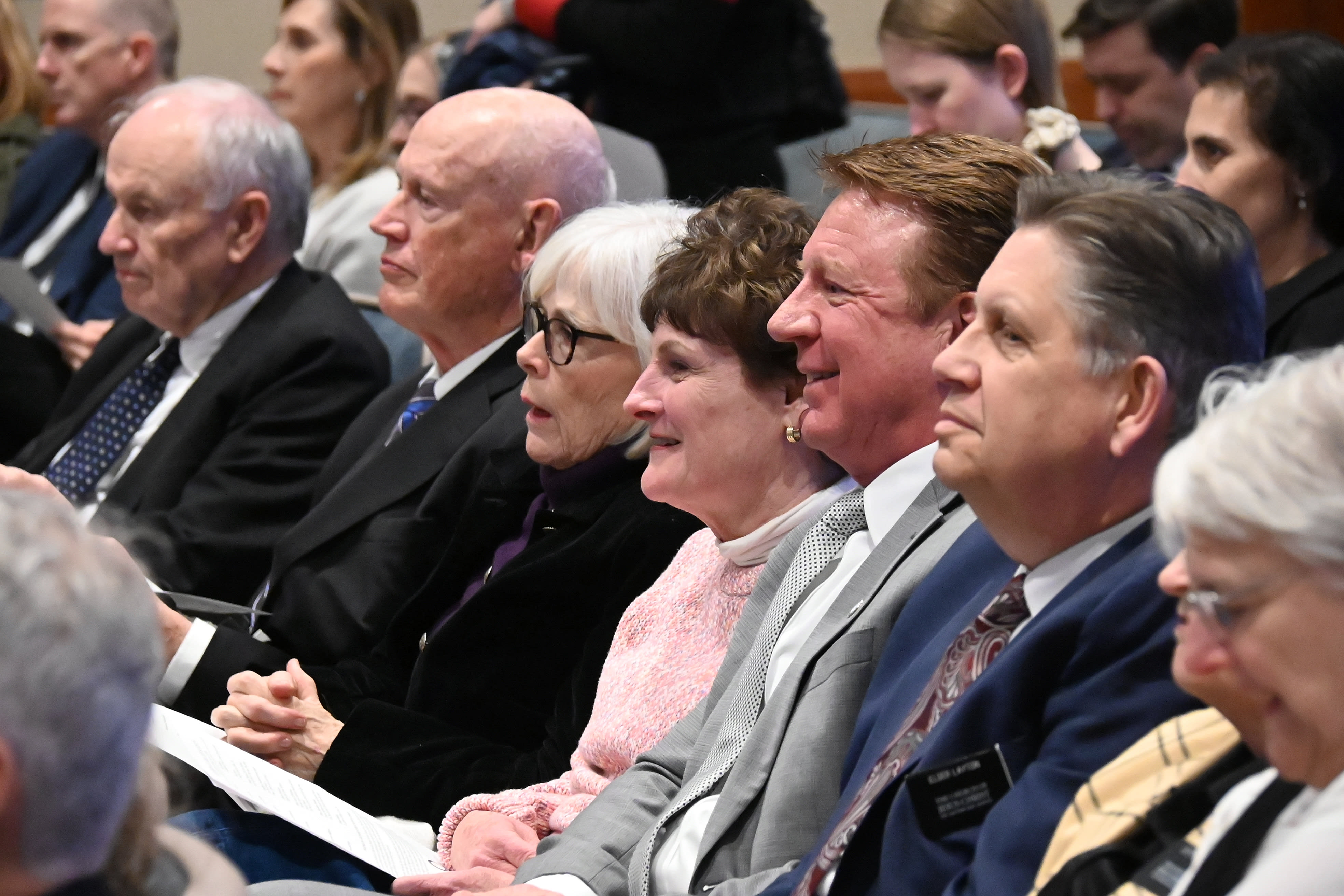
Elder Dushku has over thirty years of experience working as an attorney before his call to church service. Elder Dushku began the evening saying it is the best of times and it is the worst of times, coining the Dickens phrase to discuss the importance of protecting religious liberty rights in society today. Our culture is moving away from church attendance instead extolling the self, explained Dushku. Dushku cited Berkeley professor Robert Bellah coining the phrase “expressive individualism.” Bellah explains that “expressive individualism” is sloganed in society phrases like, “follow your heart” or “you do you” or “be true to yourself.” Historically, meaning was shaped and derived from family, god or country to find meaning but, “Now we are in a very different culture than the one that produced for example the scout oath which speaks of honor, duty to God and country, obedience, law, sacrifice and moral rigor….those notions were what were understood to define the character of the soul and the self. That has now changed.” As Dushku pointed out, Western culture now sees the realization of individuality as life’s primary purpose; the modern moral imperative is to liberate the self from virtually any constraint. Religion has become a “private hobby” and this comes into conflict with the “doctrine of Christ.” “By contrast,” said Elder Dushku, “Jesus Christ invites us to follow Him and thereby find our highest and best selves through Him. And so the Lord gave us commandments and covenants, precepts and principles, prophets and pastors, to help define us as a peculiar people — as His people — and to guide us back into His eternal presence.”

Lastly, Dushku explained that we can reinvigorate and advocate for religious freedom by upholding seven critical legal doctrines. These legal doctrines are:
- The rule of law.
- The principle of nondiscrimination and equality before the law.
- The free exercise of religion.
- The freedom of speech.
- The rights of parents to direct the upbringing of their children.
- The right of religious communities to organize.
- The autonomy of religious organizations to govern their internal affairs without outside interference.
It is the best of times and the worst of times pertaining to religious liberty but not the church itself. Dushku pointed to a bright future of building temples and living prophets and apostles guiding the people. “People of faith”, he said, “can advocate for a robust religious liberty by defending the rule of law and showing the world the worth of religion. At a time of widespread skepticism about the value of faith and churches, we can open our mouths and our laptops and bear witness to the immeasurable good religion does.” As attorneys we can actively participate in the bright and glorious future of gathering Israel.
For details on how to view the broadcast, click here
